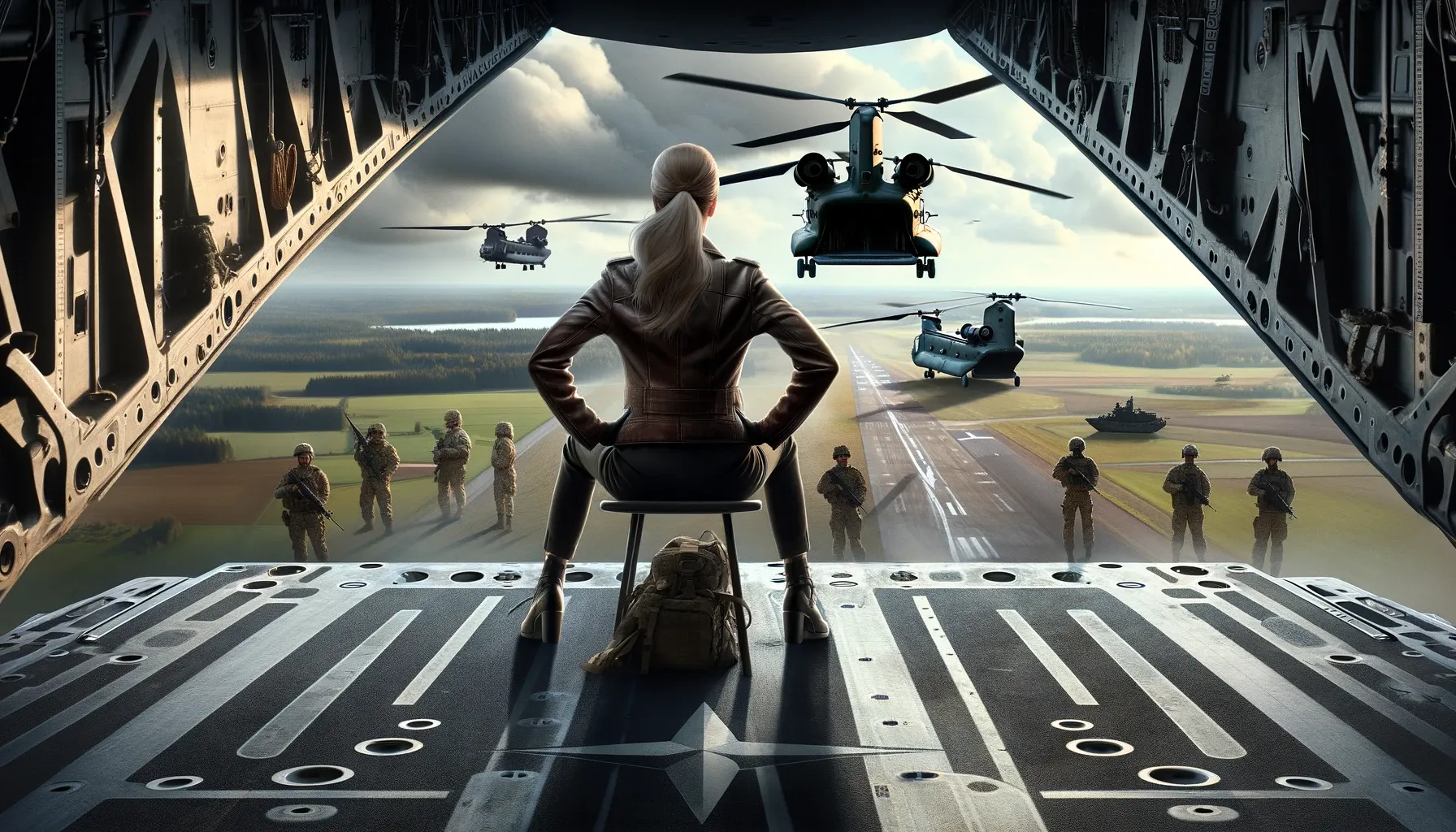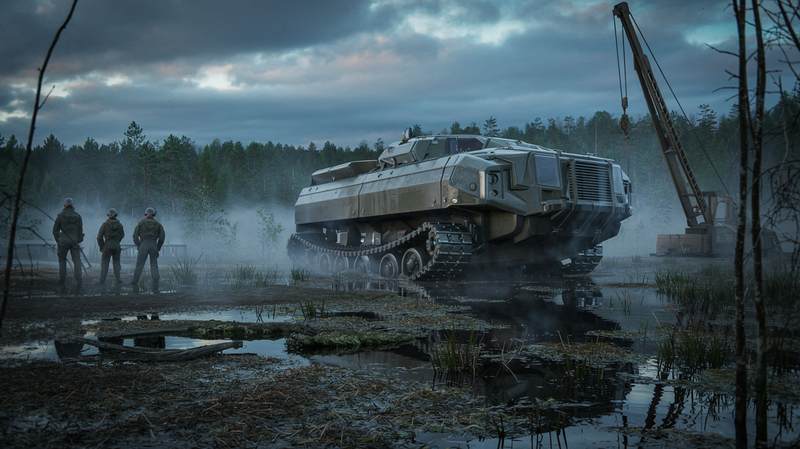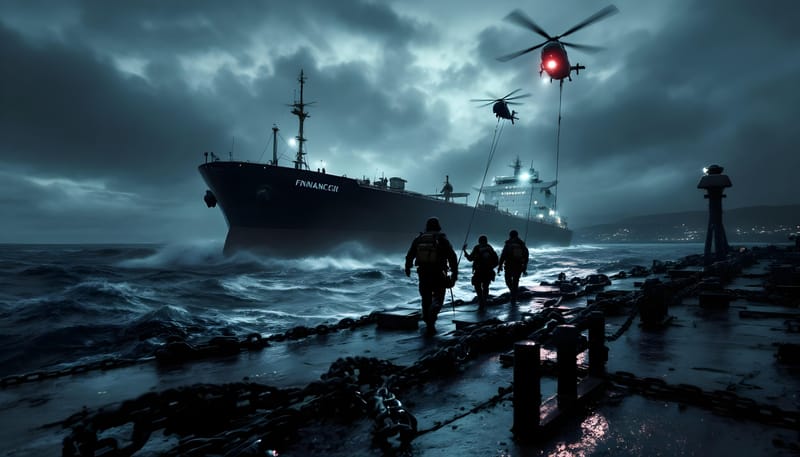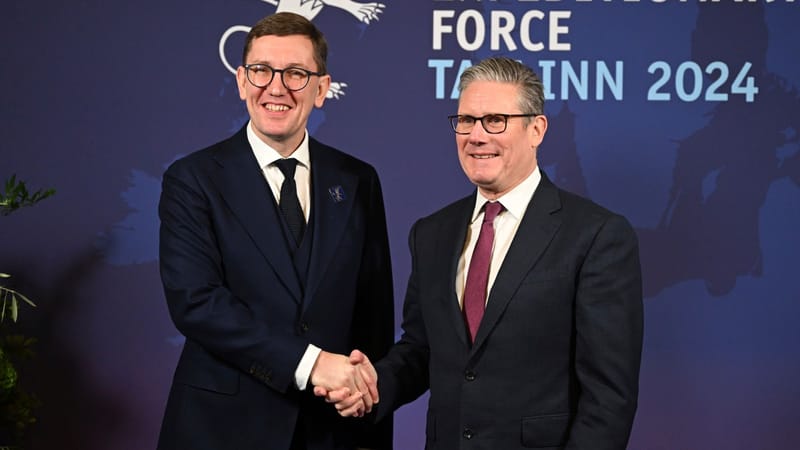Kaja Kallas: “My military tells me I don’t need a bear to show our strength to Moscow”
Nothing better captures the predicament of Estonia than the image of the small Baltic state’s Prime Minister, Kaja Kallas, sitting fearlessly cross-legged in a leather jacket at the edge of an open Chinook helicopter tailgate. She was flying home on the British Chinook from a visit to NATO exercises,
Nothing better captures the predicament of Estonia than the image of the small Baltic state’s Prime Minister, Kaja Kallas, sitting fearlessly cross-legged in a leather jacket at the edge of an open Chinook helicopter tailgate. She was flying home on the British Chinook from a visit to NATO exercises, about 130 kilometers (81 miles) south of the capital, Tallinn. The Spring Storm 2024 event involved 9,000 Estonian soldiers and reservists along with 5,000 troops from other alliance members, hundreds of armored vehicles, aircraft, and naval vessels. The goal, says Kallas, was to send a clear message to Moscow: “Don’t come here.”
For Estonia, this strategy is undoubtedly sound. To simply hope that President Vladimir Putin isn’t crazy enough to risk attacking a NATO member, and thus do nothing to prepare, would invite him to ask the obvious question: Are British, Spanish, and American mothers really willing to send their sons and daughters to fight thousands of kilometers away against a large military force that has a seemingly limitless tolerance for casualties?
For a nation of 1.3 million, deterrence would be unachievable without clear evidence that NATO’s security guarantees are rock solid, backed by the full might of the US and major European allies. It’s all or nothing. And the only way to provide that kind of certainty is to train and develop the capacities to fight the war that should never happen. This, too, was the lesson of the Cold War.
Today, finally, those preparations are at least beginning to look credible in the Baltics. Surely, 14,000 troops couldn’t withstand a Russian invasion, but they might delay it long enough to bring in the kind of force that could — especially now that nearby Finland and Sweden are members. “My military tells me NATO works now the way we thought NATO worked before we joined,” said Kallas to reporters. She hasn’t always been so complimentary about the levels of European commitment to the bloc’s eastern front, let alone non-NATO Ukraine.
Despite the military readiness on display, NATO faces significant political challenges. The recent assassination attempt on Slovak Prime Minister Robert Fico highlights the fragility of political cohesion within the alliance. As the news of the attempt spread, concerns arose about how the Kremlin might exploit such events to sow discord within NATO, perhaps by spreading conspiracy theories or blaming the attack on Ukraine.
NATO’s internal divisions are increasingly apparent. Slovakia’s Robert Fico and Hungary’s Viktor Orban, both elected on pro-Russian, anti-American platforms, represent a growing faction within NATO that is skeptical of continued support for Ukraine. Orban has already used his EU veto power to delay aid to Ukraine and slow the condemnation of anti-democratic actions in Georgia.
The situation is compounded by political instability in the West. Upcoming elections in the US and Europe could further disrupt NATO’s unity. Former US President Donald Trump’s lack of commitment to NATO and Ukraine's defense looms over the alliance, with his potential return to power threatening to undermine transatlantic solidarity.
NATO has the resources and capacity to counter Putin’s ambitions, but it must overcome significant political hurdles. Strengthening military capabilities is essential, but so is maintaining political unity. The events at Estonia's Spring Storm highlight the dual challenge facing NATO: improving military coordination while navigating an increasingly complex political landscape.
As NATO continues to bolster its eastern defenses, the alliance must also address the internal political divisions that threaten to weaken its collective resolve. NATO's strategy's success depends not only on its military strength but also on its ability to present a united front against both external and internal threats.
Kaja Kallas: A Modern Legend
If Putin once rode bears and swam with ducks, Estonia now has its own legend — Prime Minister Kaja Kallas, who flies with style in an open helicopter tailgate! Every Estonian woman could envy and take inspiration from this fearless leader. Kaja doesn’t need a bear to show her strength — a helicopter and her military are enough to defend Estonia in any weather!





